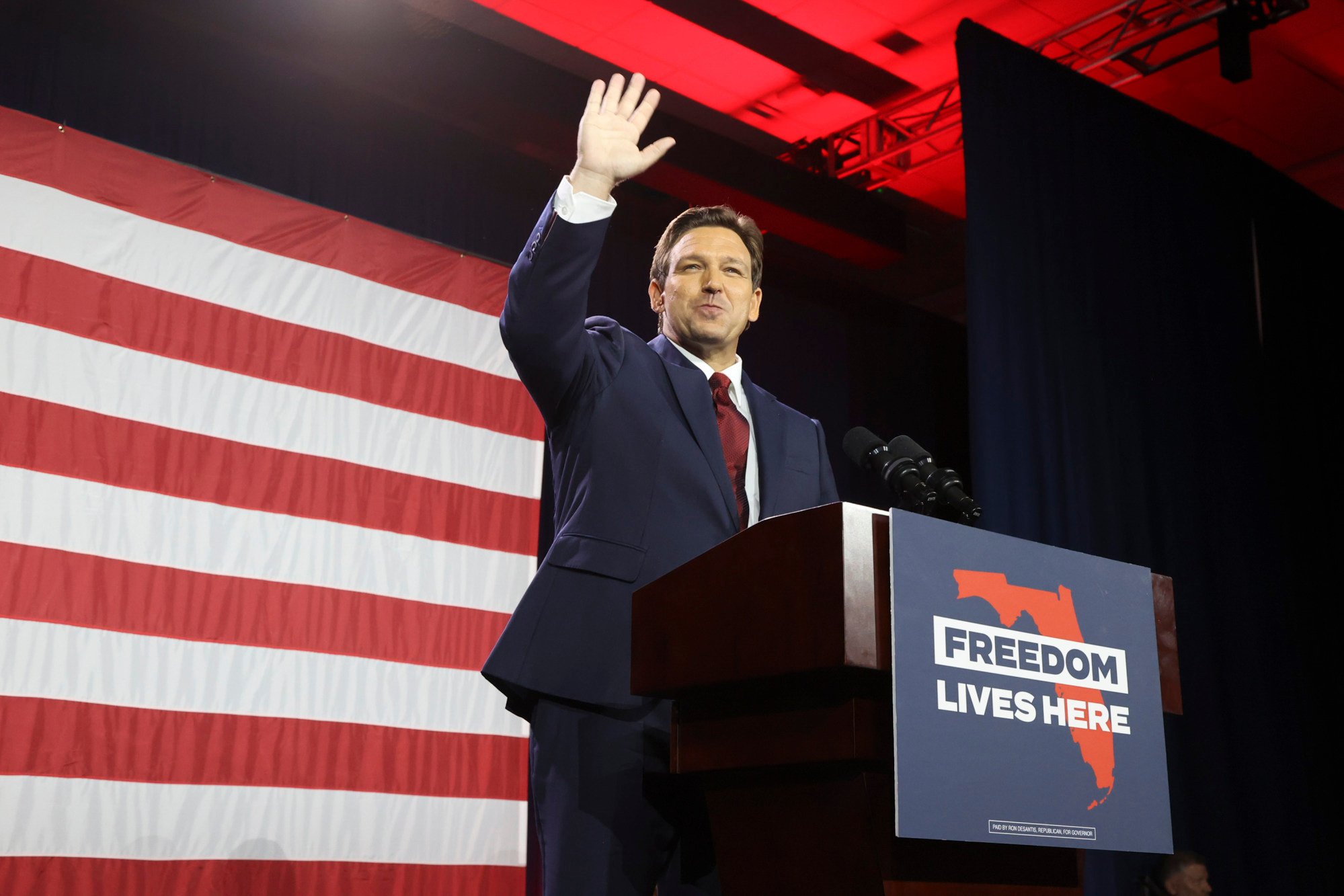
Donald Trump announces 2024 bid for US presidency, vows to cut ‘dependence on China’
- Third run for Oval Office will face opposition from own Republican Party after lacklustre midterm election results for candidates he backed
- Former president who steered US into direct economic confrontation with China undeterred by impeachment and ongoing January 6 probe
“No president had ever saw [sic] or received one dollar for our country from China until I came along.”
Also, the US imported US$505 billion worth of goods from China in 2021, according to US government data, even with 2017, the last full year before the punitive tariffs took effect.
Trump’s remarks continued the false assertion that Chinese companies, instead of American buyers, pay the duties on the products they ship to the US.
US suspending trade ties with China ‘hard to imagine’
Chinese Foreign Ministry spokeswoman Mao Ning said of Trump’s announcement on Wednesday: “This is US internal politics, and I will not comment on it”.
Also working against Trump’s prospects as a candidate are the multiple criminal and civil probes against him, including a Justice Department investigation into alleged classified documents that Trump took when he left the White House.
Trump lost his re-election bid in 2020, but did not concede and has made assertions that that the 2020 election was “rigged” and “stolen” part of his messaging in the lead-up to his announcement at Mar-a-Lago.

Republican gubernatorial candidate Doug Mastriano and Senate candidate Mehmet Oz in the crucial swing state of Pennsylvania – both with strong Trump endorsements – were defeated decisively by their Democratic opponents.
“Trump won the 2016 nomination largely because primary candidate egos and failures to read the room resulted in a candidate with minority support – Trump – winning the nomination,” said Terry Haines, founder of Washington-based consultancy Pangaea Policy and former Congressional staffer.
“The Republican establishment rejecting Trump, not unlike a body rejecting a virus, points to a 2024 election cycle where that fragmentation is much less likely to happen,” he said.
DeSantis “makes that easy to see … but whether it’s DeSantis or someone else, the Republican establishment now is invested in denying Trump another shot at the nomination, and that’s a significant change.”

